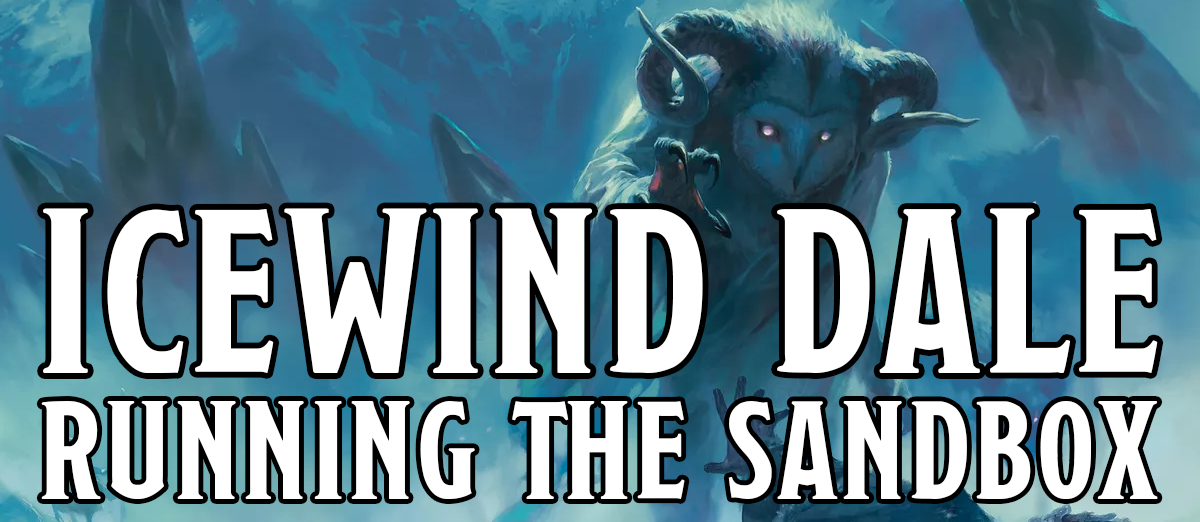2) The adventure presented is a sandbox with many quests not linking directly to the main story. And when the main story is that sub freezing temperatures are destroying an entire region, cloaked in perpetual night, in the talons of an evil goddess, it's hard for my players to want to focus on anything that isn't connected to that.
It's worth noting that there are a couple of Wizards adventures recently (Storm King's Thunder) that make a few assumptions about how they're played that aren't spelled out. (Or are derailed by other stuff in the adventure).
I view Rime of the Frostmaiden as starting as a "adventurers making a living in a harsh environment" adventure, which only later turns into a "save the land" adventure.
Storm King's Thunder, when played well, does the same thing: You're regular adventurers, doing quests across the land, and only gradually do you realise that something is wrong - there are giants everywhere! - and as you get to grips with the giants are all doing different thing and perhaps something is badly wrong does Harshnag come and bring you to the main "save the land" plot.
This is as opposed to Tyranny of Dragons or Princes of the Apocalypse, which work best when you are sent first to "find out what is wrong" and slowly uncover all the clues and discover the truth of the situation and then try to stop it. Neither Tyranny nor Princes work that well when you're just jobbing adventurers.
Incidentally, the GDQ series, even in its original form G1, G2, G3, D1, D2, D3 and Q1, follows this second template. (You are given a job, and everything that follows leads from that).
So, with your players, they're expecting the second type when the early stages are the first type. So, how do you fix it?
Basically: You give them a patron that sends them on the quests that matter.
Which quests matter? Ah, now you need to examine the adventure!
Cheers!

